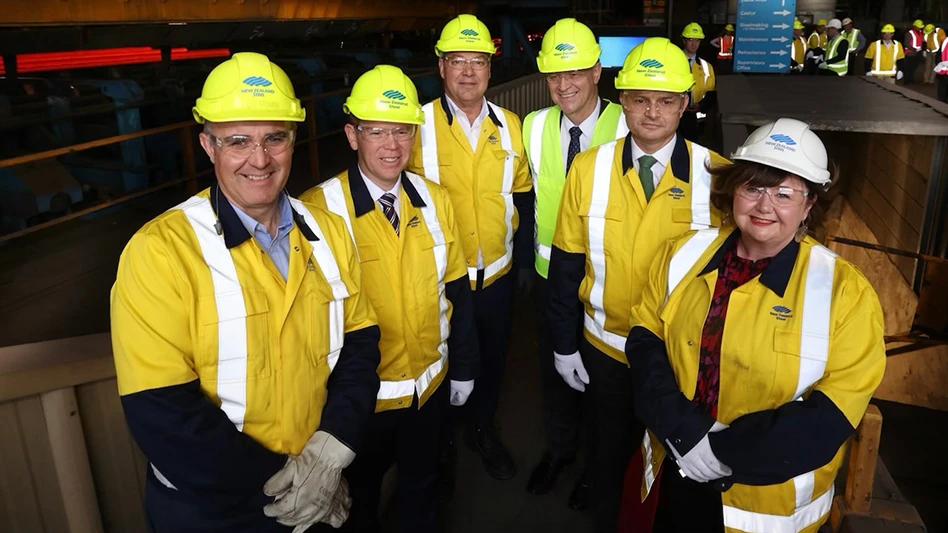
Photo courtesy of BlueScope
Australia-based steelmaker BlueScope and its New Zealand Steel business unit say the government of New Zealand has agreed to help invest in a $198 million mill conversion project in that nation. The project in Glenbrook, New Zealand, will entail replacing blast furnace/basic oxygen furnace (BOF) technology with scrap-fed electric arc furnace (EAF) equipment.
BlueScope indicated in an investor presentation this February that the BOF to EAF switch was being considered. At that time, the steelmaker described the Glenbrook mill as using “locally sourced iron sand and coal to manufacture about 650,000 metric tons of steel slab and billet a year.”
The same presentation indicated a conversion investment would entail “the installation of [a] scrap melting or EAF process to supplement or replace the existing steelmaking process at the Glenbrook plant.”
Robin Davies, BlueScope’s chief executive for its New Zealand and Pacific Islands region, says the investment will reduce Glenbrook’s carbon footprint by 800,000 metric tons “from day one,” which he equates with taking approximately 300,000 cars off the road permanently.
“That’s a reduction of over 45 percent in New Zealand Steel’s emissions--or a total of 1 percent of New Zealand’s total annual emissions,” Davies says. “These reductions will come from replacing Glenbrook’s existing oxygen steelmaking furnace and two of the four coal-fueled kilns.”
He continues, “An electric arc furnace makes sense when there’s enough affordable renewable energy and scrap steel available, a way to get that scrap steel to site and the right policy settings. We’ll firm up the details of the different aspects of the project over the coming months but crucially, New Zealand has all these essential enablers in place.”
The steelmaker says a renewable energy contract also will be part of the project. “We’re delighted by the pioneering and creative partnership with [regional utility] Contact Energy to provide a competitive and innovative supply agreement,” Davies says. The EAF provides New Zealand Steel with significantly more production flexibility, which means we can scale down production at times of peak demand or supply shortages.”
Davies refers to steel as “infinitely recyclable," saying, “This model will make New Zealand as close to self-sufficient as possible using renewable energy to recycle domestic scrap steel, rather than shipping it offshore.”
He adds, “This is a pragmatic response that not only sustains our critical domestic steel supply but also provides a collaborative approach with government and industry to be world leaders in lower emissions steel.”
The executive indicates the New Zealand government will contribute up to $93 million through an industry decarbonization fund it manages. “This project would not happen otherwise,” states Davies. “This is a bold breakthrough initiative by the government—but it’s the right one, especially when you see the carbon reduction dividend that helps the country meet its global decarbonization targets under the Paris Agreement.”
New Zealand Steel will invest more than $100 million, according to BlueScope. “From our perspective, this is a necessary step to secure steelmaking in New Zealand for many years to come,” Davies says.
Vassella, praising the public/private partnership aspect of the investment, says, “New Zealand Steel and the government should be very proud of their initiative and the hard work that has led to today’s announcement.”
Latest from Recycling Today
- Lautenbach Recycling names business development manager
- Sebright Products partners with German waste management equipment company
- WasteExpo transitions to biennial format for enhanced experiences
- Study highlights progress, challenges in meeting PCR goals for packaging
- Washington legislature passes EPR bill
- PureCycle makes progress on use of PureFive resin in film trials
- New copper alloy achieves unprecedented high-temperature performance
- Gränges boosts profits and sales volume in Q1 2025





